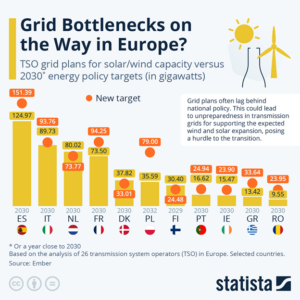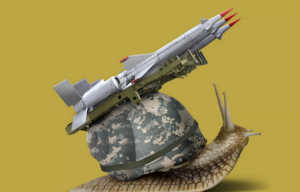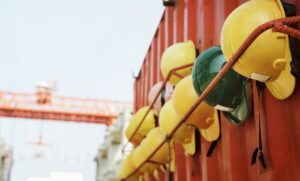 In the first quarter of 2017, the net investments in the national economy amounted to 12,836.9 million lei, representing a decrease of 3.1% compared to the first quarter of 2016, the National Institute of Statistics (INS) announced.
In the first quarter of 2017, the net investments in the national economy amounted to 12,836.9 million lei, representing a decrease of 3.1% compared to the first quarter of 2016, the National Institute of Statistics (INS) announced.
What the INS has NOT announced is the evolution of this indicator over the last four years. We present it to you.
*
- Evolution of net investment in the national economy (2013=100%)
- Year
- Change compared to previous year
- Investment compared to 2013
- Source: INS, own calculation, *Q1
*
The change in the way of obtaining the economic growth from stimulating production, which would have been a medium and long-term sustainable alternative, to consumption, which only serves to support a momentary economic growth, in the short term, seems to be obvious.
To be noted, the effects of investments are not immediately visible and involves targeted resources for infrastructure development, acquisition of production assets for modernization and increased competitiveness. Then, over time, money return by increasing efficiency, and wages can increase in a sustainable way due to the results achieved based on higher sales of goods and services that are duly taxed to public finances.
Mechanism by which NO money has been found for investment
The effects of the wage increases applied by administrative decisions (in the budget sector and pensions) are seen in the temporary increase of living standards, or if you wish, of competitiveness, in terms of demand (not the supply). If they take place at a higher pace than the GDP growth, aligned to the capability of covering the additional market demand from own resources, that allows the increase in the share of foreign products that will cover the remaining gap.
Obviously, with smaller investments, it will be harder to achieve higher growth results, simply because growth without investment has not been invented yet. That is why an optimal balance in the allocation of public resources between investment and revenue growth is essential to maintain the trend of narrowing the gap with the West and not turning ourselves into a simple market increasingly dependent on the foreign supply.
Now let’s review what the Government has done based on the official data from the Ministry of Finance on the budget implementation. It additionally spent 6,280 million lei in the first quarter of 2017 and has not found at least 400 million lei to maintain investments at the level of the first quarter of 2016, if it could not have increased them.
2,270 million lei (36% of the total extra spending) went to the wage increases in the budgetary sector (where we see an impressive + 16.4% in staff costs) and an additional 1,930 million lei (31%) have been allocated to social assistance (mainly to increase pensions, but not only, as the increase of the pension point was 5% while the increase of the allocated amounts was 9.1%).
Under these circumstances, even if the social-democratic principle is accepted in the economic policy, one can ask a simple question:
What big deal would have been to include (by slight limitations of the wage increases) this amount of about 400 million lei (only 6% of the extra money allocated!) from the public funds, which would have allowed us to maintain the level of investment in the national economy at least at the level set by the former technocrat government? In fact, we remind those who position themselves on the left side of the political scene that socialism entailed massive public investment.
Moreover, what is the difference between those who, by neglecting public investment, caused a 3.3% decline in 2016 in terms of investments in the national economy and those who started 2017 with an almost identical -3.1%? We remind that we reached +8.4% in 2015, whose effects are visible only now. The same as the decreases in 2016 and 2017 which will count in the future.










